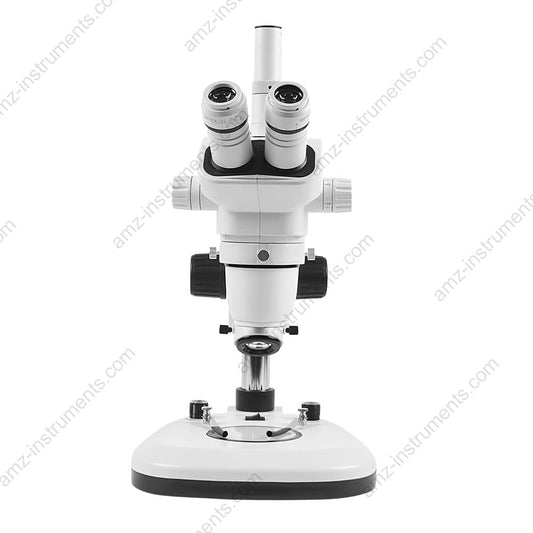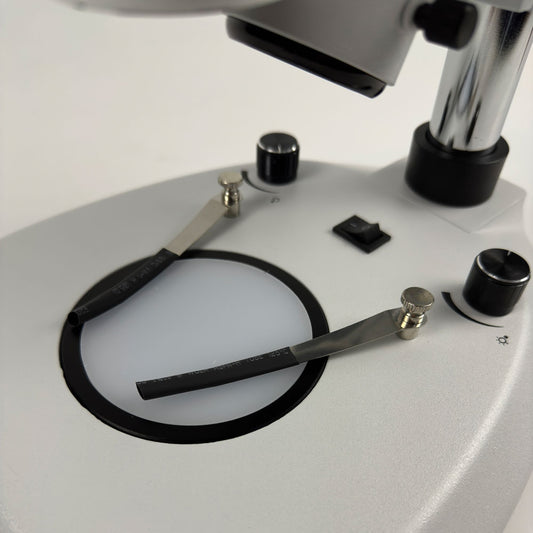-
ZM6745T-D4ESD 0.67-4.5X Zoom Trinocular ESD Safe Stereo MicroscopeESDThe ZM6745B/T-D4ESD microscope offers static-free viewing with a 0.67-4.5X zoom trinocular design, making it a reliable choice for electronics applications. It features a wide magnification range, adjustable interpupillary distance, and bright, clear optics. This ESD-safe microscope is perfect for a variety of inspection and assembly tasks. Trinocular Greenough zoom...
- Regular price
- $0.00
- Regular price
-
- Sale price
- $0.00
- Unit price
- per
-
ZM6745B-D4ESD 0.67-4.5X Zoom Binocular ESD Safe Stereo MicroscopeThe ZM6745B/T-D4ESD microscope offers static-free viewing with a 0.67-4.5X zoom trinocular design, making it a reliable choice for electronics applications. It features a wide magnification range, adjustable interpupillary distance, and bright, clear optics. This ESD-safe microscope is perfect for a variety of inspection and assembly tasks. Binocular Greenough zoom...
- Regular price
- $0.00
- Regular price
-
- Sale price
- $0.00
- Unit price
- per
ESD Stereo Microscope
An ESD (Electrostatic Discharge) stereo microscope is a type of microscope specifically designed for working with sensitive electronic components. It is equipped with features that help prevent damage to these components caused by electrostatic discharge.
The ESD stereo microscope typically has a metal housing or coating that provides a conductive path for any static electricity to safely discharge. This helps protect the electronic components from being damaged by static charges.
The ESD stereo microscope also often includes anti-static lenses or coatings to minimize the risk of electrostatic discharge. These lenses or coatings help to prevent the accumulation of static charges on the microscope's optics, which could potentially damage the electronic components being observed.
Overall, an ESD stereo microscope is an essential tool for anyone working with sensitive electronic components, as it provides a safe and reliable way to observe and inspect these components without the risk of causing damage due to electrostatic discharge.










